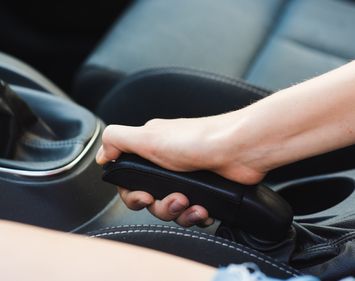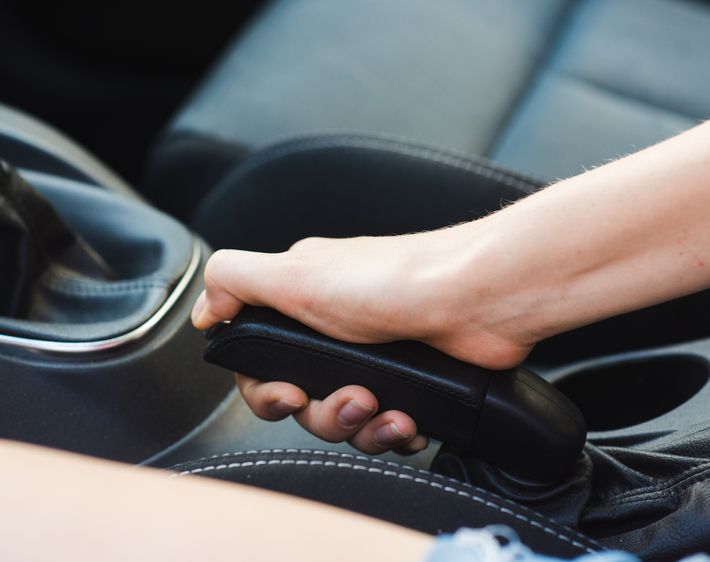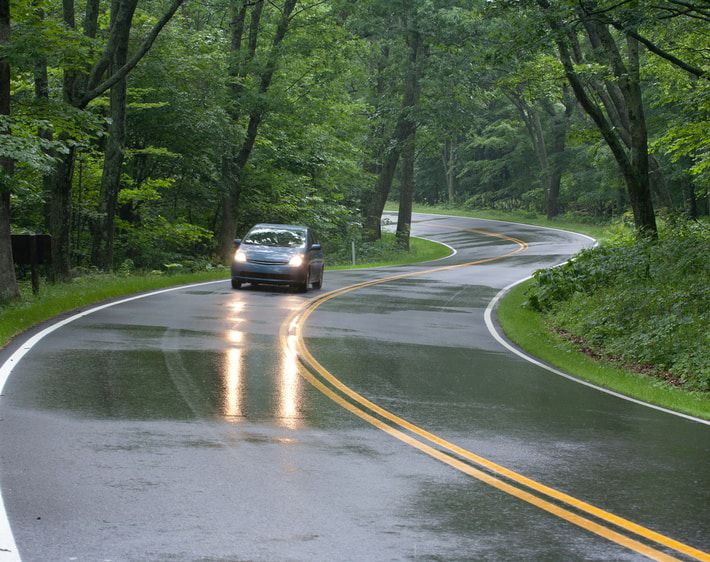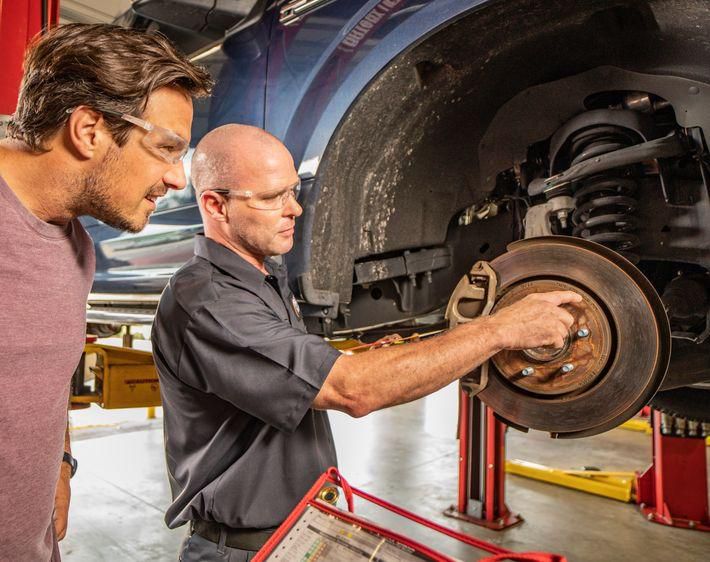
The truth is, many drivers don’t know how to use their emergency brake properly. If you aren’t engaging yours every time you park, you might be one of them.
We know this might be brake-ing news, so here’s why you should use your e-brake each time you shift into park!
What is a parking brake?
Your parking brake is either a handle or a button that engages a secondary braking system. This system operates independently from your transmission’s braking system. Originally, this secondary braking mechanism was intended to stop a vehicle when the main brake system failed. Today, it is primarily used to keep a vehicle in place when parked.
How does a parking brake work?
When you engage your parking brake, discs inside your rear wheels called parking brake shoes expand and squeeze against the inner part of the wheel, keeping your tires from spinning and stopping your car from rolling away.
To use your parking brake properly, consult your owner's manual and follow these four easy steps.
By engaging your e-brake before shifting into “park,” you’re letting the hydraulic brake system do the work and taking stress off the transmission!
Why do I need to use my parking brake?
When you put your car in park, your parking pawl—a hammer-shaped pin—is released into one of the grooves in your transmission gear to keep it from turning. Unless you use your parking brake, this tiny pin is all that’s stopping your 2-ton vehicle from rolling off without you.
When you don’t use the parking brake, your transmission and parking pawl take a lot of unnecessary strain. This strain can wear your parking pawl and your transmission out much sooner than the manufacturer intended, leading to pricey repairs, and putting your vehicle at risk of rolling away like a bumper-busting shopping cart. Engaging your parking brake helps keep money in your pocket and your car in its place!
When should I use my parking brake?
Knowing when to use your parking brake is simple. Just ask yourself one question: “Am I putting my car in park?” If the answer is yes, pull that lever (or push that button) whether you’re filling up at the pump or parking on a friend’s hilly driveway.
The name “emergency brake” may have misled you in the past, but now you know that your parking brake not only keeps your car from moving. It also saves your transmission from unnecessary wear and tear. So, for your car and your wallet’s sake, always engage your parking brake.
I haven’t been using my parking brake. Should I worry?
If you’re wondering whether your brakes or transmission are worn from years of e-brake misuse, watch out for common brake problems. Also, pay attention to whether your car rolls forward or backward more than a few inches when you put it in park. If it does, there’s a chance that your parking pawl or transmission gear are worn down.
And as soon as you notice your car’s not stopping like it used to, pull over to your nearest Tires Plus. We offer free brake inspections, and our expert technicians can give you a break from brake problems!



